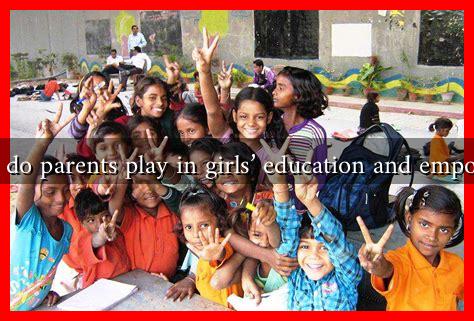-
Table of Contents
What Role Do Parents Play in Girls’ Education and Empowerment?
Education is a fundamental right and a powerful tool for empowerment, particularly for girls. The role of parents in this process is crucial, as they are often the first educators and influencers in a child’s life. This article explores the multifaceted role parents play in girls’ education and empowerment, highlighting the importance of their involvement, the challenges they face, and the positive outcomes of their support.
The Importance of Parental Involvement
Parental involvement in education is linked to numerous positive outcomes for children, especially girls. Research indicates that when parents are engaged in their daughters’ education, it leads to:
- Higher academic achievement
- Increased motivation and self-esteem
- Better social skills and behavior
- Lower dropout rates
According to a study by the National Center for Education Statistics, students whose parents are involved in their education are more likely to earn higher grades and test scores. This involvement can take many forms, from helping with homework to attending school events and advocating for their daughters’ needs.
Encouraging Educational Aspirations
Parents play a pivotal role in shaping their daughters’ educational aspirations. By fostering a positive attitude towards education, parents can help girls envision a future where they can pursue higher education and career opportunities. Here are some ways parents can encourage educational aspirations:
- Discussing the importance of education and its impact on future opportunities.
- Setting high expectations and encouraging goal-setting.
- Providing resources such as books, technology, and access to extracurricular activities.
- Being role models by demonstrating a commitment to lifelong learning.
For instance, a case study from the Malala Fund highlights how parents in regions with limited educational resources can still empower their daughters by prioritizing education and advocating for their rights. In many communities, parents who actively support their daughters’ education can lead to significant changes in societal attitudes towards girls’ schooling.
Addressing Barriers to Education
Despite the positive impact of parental involvement, many parents face challenges that hinder their ability to support their daughters’ education. These barriers can include:
- Poverty and financial constraints
- Lack of education or awareness about the importance of girls’ education
- Cultural norms that prioritize boys’ education over girls’
- Geographical barriers, especially in rural areas
Organizations like UNICEF and Save the Children work to address these barriers by providing resources and support to families. For example, initiatives that offer financial assistance for school fees or provide transportation can significantly increase girls’ enrollment rates in schools.
The Impact of Empowered Parents
When parents are empowered, they can become advocates for their daughters’ education and rights. Empowered parents are more likely to:
- Engage with teachers and school administrators
- Participate in community discussions about education
- Challenge discriminatory practices that limit girls’ access to education
A notable example is the “Educate Girls” program in India, which trains parents to become community leaders advocating for girls’ education. This initiative has led to increased enrollment and retention rates for girls in schools, demonstrating the power of parental involvement in driving change.
Conclusion: The Path Forward
Parents play an indispensable role in girls’ education and empowerment. Their involvement not only enhances academic performance but also fosters a culture of aspiration and resilience. By addressing barriers and empowering parents, communities can create an environment where girls can thrive academically and socially. As we move forward, it is essential to recognize and support the critical role parents play in shaping the future of girls’ education. Investing in parental engagement is not just beneficial for individual families; it is a vital step towards achieving gender equality in education globally.
For more information on how to support girls’ education, visit UNICEF Education.

